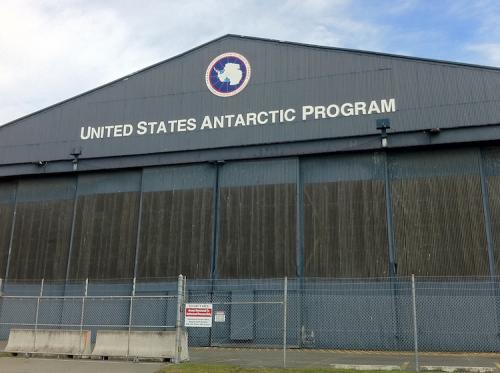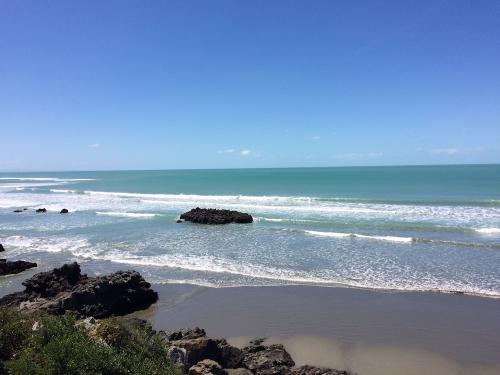6AM Received a phone call that my Ice flight was delayed 4 hours to 12:30 PM ...11AM Checked out of hotel to prepare for the shuttle to the terminal... 11:15 AM Received word that the flight would be delayed another 24 hours. ...11:15:30 AM Checked back into the hotel.
... It sounds frustrating and a number of people have reached out to me and expressed as much. It turns out it really isn't. The good people who put me down here were very clear that this kind of thing is likely. Antartica is hard. Getting there takes a lot of coordination and effort. The weather in the Antarctic can change very rapidly. And if it is fine then New Zealand's weather might not be. And it is not only the weather that might work against you. The Lockheed LC-130 that I will likely ride down there isn't a commercial airplane it is an Antarctic variant of the C-130 Hercules. This is a whole different animal from a commercial airplane. The LC-130 is a specialized aircraft with a unique maintenance profile. In addition to that, the aircraft is so specialized that anything that could compromise the performance of the crew, like an illness, could delay a flight. Not just any pilot can handle this aircraft in the conditions that it is likely to encounter. In addition to these and a million other possible safety factors, the United States Antarctic Program (USAP) is also very diligent in maximizing the efficiency of costly antarctic flights. This efficiency means that sometimes plans can change. Each flight needs to make every ounce of weight and drop of fuel count. The changing conditions on the ice or over the Southern Ocean could easily cause a flight to boomerang. Such events are inevitable but costly so they do their best to avoid it. I know that every one who is responsible for overseeing the safety and logistics of these flights is doing their best and I trust them.
 The USAP Terminal.
The USAP Terminal.
It really is remarkable that things run as well as they do. The USAP maintains no less than three year-round research stations in Antarctica. Each Antarctic station (McMurdo Station, Amundsen-Scott South Pole Station, and Palmer Station) has tremendous logistical demands. The scientific disciplines that are actively researched at these stations include astronomy, atmospheric sciences, biology, earth science, environmental science, geology, glaciology, marine biology, oceanography, and geophysics. These bases are active international scientific endeavors. Each base takes tremendous support. They each must be maintained, heated, and supplied with food and water. The waste that is produced must be handled according to the Antarctic Treaty of 1959. There are multiple active airstrips and ports that must be operated. In addition, the USAP oversees and manages the American research vessels that sail in the Antarctic waters. It is amazing to me that the Antarctic program runs so smoothly given the extraordinary remoteness of the stations and research vessels. The folks at the USAP have been very helpful and focused. The stated goal of the USAP is "...to understand the Antarctic and its associated ecosystems; to understand the region's effects on, and responses to, global processes such as climate; and to use Antarctica's unique features for scientific research that cannot be done as well elsewhere." These folks live to that goal daily and have done so every day since the USAP was established in 1959. Even just using my own situation this morning as an example. They need to coordinate an 8-10 hour flight through some of the trickiest flight conditions around, but they still gave me enough notice that I didn't even have to leave the hotel. I could have easily been sitting on a runway strapped into a troop seat for six hours before they called it or worse I could have been half way to Antartica and then forced back. These things do happen. It's not ideal but it is the best that can be expected. My team is now much more time pressured to get our work done once we hit the ice but we are meeting and reworking the logistics so we can hit the ice rolling (skating?). So for now, don't worry about me I'll be fine. I'm learning a lot from the scientists and technicians here and there are worse places to be stuck than New Zealand.
 Really ... I will be fine.
Really ... I will be fine.
**************************************************LATE NIGHT UPDATE******************************************** The next flight is scheduled for early in the morning tomorrow. I am taking that as a very positive sign (for no real reason other than blind optimism!). I'll have to check out by 6:15 AM to make it over so I better get to sleep. The good news with an early flight like that is that it's still daylight when you get to McMurdo (that's a joke because its 24 hours of daylight down there right now!).


Comments
Add new comment